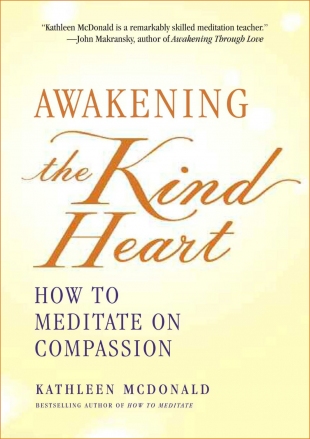Kathleen McDonald was ordained as a Tibetan Buddhist nun in 1974. She has taught for decades as part of the Foundation for the Preservation of the Mahayana Tradition (FPMT), a worldwide organization of Buddhist teaching and meditation centers. She is the author of the bestselling How to Meditate and the coauthor, with Lama Zopa Rinpoche, of Wholesome Fear. "All beings want happiness, and do not want to suffer" is a phrase often uttered by Tibetan lamas. According to McDonald, this desire brings together beings, and a feeling of love for others means "acknowledging this desire, respecting it, and doing what we can to fulfill it." We might think that this love is a limited resource and that we can only go so far with it, but Buddhists are convinced that "learning to be more loving is like discovering a natural spring within yourself: however much love you give, more will always come bubbling up."
There are negative emotions which can block the flow of this natural love — anger and hatred, attachment, and selfishness, among others. To confront selfishness, McDonald suggests the following: contemplate the faults of always putting yourself first; ask yourself, "Who is more important, me or others?" and cultivate a motivation to put others first. McDonald follows this discussion with a series of meditations on loving-kindness along with dedicating merit to others. Next, the author compares love and compassion to two sides of a coin: "When we love others, we naturally want them to not suffer, and when we have compassion for others, we naturally want them to be happy."
In her examination of compassion, McDonald emphasizes its many positive values: it enables us to feel connected to others, it inspires us to care about those who suffer and are in pain, it makes us feel good, it benefits our mind, it is the basis of giving, it expands our heart, it stops us from harming others, it fosters patience, it helps us to forgive, and it makes the world a better place. In addition to denial and despair, other obstacles to the practice of compassion are cruelty, pity, and cynicism. Finally, this section of the book offers meditations for cultivating compassion.
The last three chapters of Awakening the Kind Heart take a hard look at joy, equanimity, and an exploration of the Eight Verses of Thought Transformation. Given the human propensity for making comparisons and for being jealous or envious of the success of others, it comes as no surprise that practicing "sympathetic joy" (rejoicing in the triumphs or prosperity of others) is so difficult to do. McDonald shares several helpful meditations which address this challenge. Awakening the Kind Heart is a substantive and practical overview of the spiritual practice of compassion.
